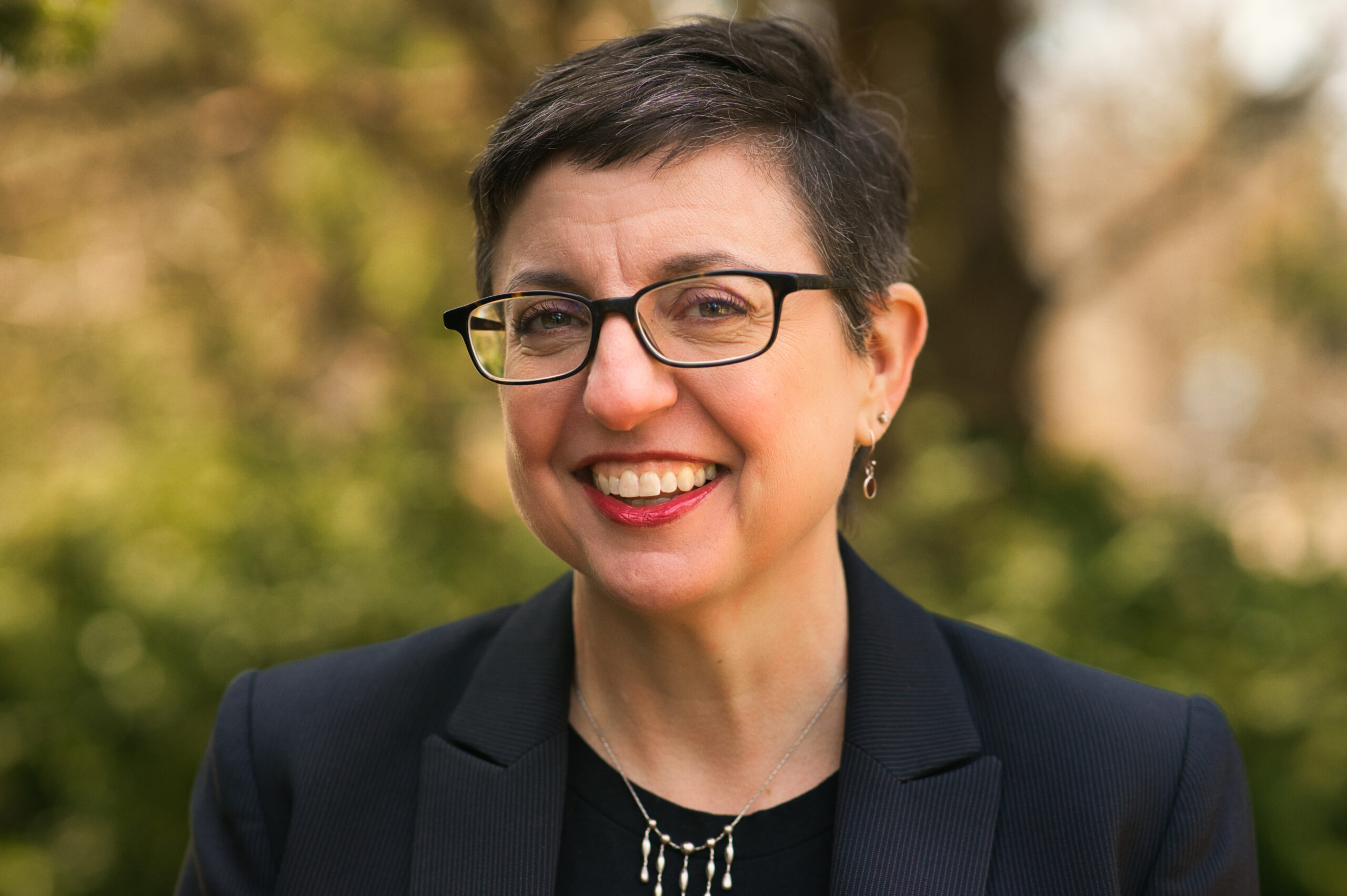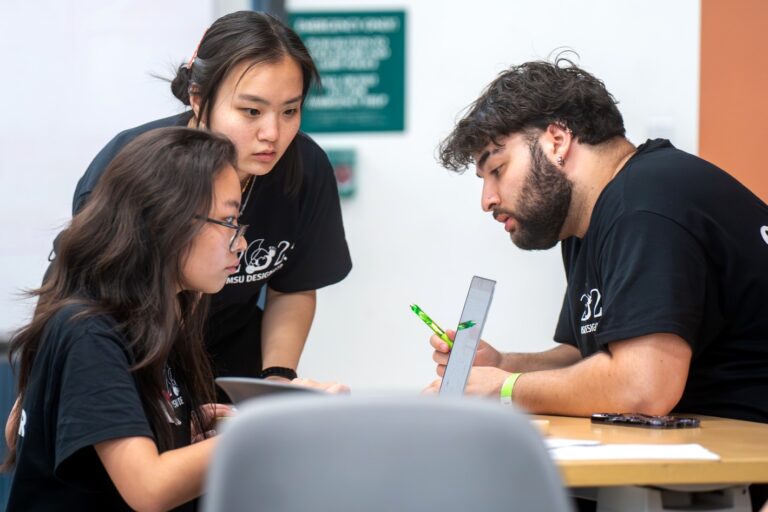Kathleen Fitzpatrick has been appointed Associate Dean for Research and Graduate Studies for Michigan State University’s College of Arts & Letters, effective July 1, 2025, following a year serving in the interim role.
A nationally recognized scholar of digital humanities, Fitzpatrick is uniquely positioned to guide the college’s research and graduate programs, having spent her career creating open-source tools for academic collaboration while building resilient, sustainable scholarly communities.
“Dr. Fitzpatrick brings a wealth of experience to this position and a clear vision for advancing research, creative activity, and graduate education across the College of Arts & Letters,” said Yen-Hwei Lin, Interim Dean of the College of Arts & Letters. “We are excited to welcome her into this role and look forward to the leadership and insight she will bring to our academic and scholarly community.”

(Photo by Ryan Frederick)
Fitzpatrick joined Michigan State University in 2017 as Professor in the Department of English and Director of Digital Humanities, having served in this role until July 2024 when she was appointed Interim Associate Dean for Research and Graduate Studies.
Her work and research interests focus on transforming universities into more open and generous spaces for cultural and intellectual work.
During her time as Director of Digital Humanities, she founded Mesh Research, a lab devoted to exploring and building open-source tools that support scholarly communication. Key among Mesh’s projects is Knowledge Commons, for which Fitzpatrick serves as Director. Knowledge Commons is an open-access and community-governed digital network that connects more than 55,000 scholars and researchers from around the world. The platform also hosts more than 30,000 academic works in its library-grade repository, KCWorks, with 6.6 million downloads since launching in 2016.
“Dr. Fitzpatrick brings a wealth of experience to this position and a clear vision for advancing research, creative activity, and graduate education across the College of Arts & Letters.”
Dr. Yen-Hwei Lin, Interim Dean of the College of Arts & Letters
Like much of the work across Fitzpatrick’s career, Knowledge Commons is focused on nurturing scholarly communities while emphasizing connection, conversation, and collaboration.
This scholarly network builds upon Fitzpatrick’s earlier initiatives as the Associate Executive Director of the Modern Language Association (MLA), in which she helped establish MLA Commons while also serving as the MLA’s first Director of Scholarly Communication and the Managing Editor of PMLA (Publications of the Modern Language Association of America).
Under her leadership, the MLA expanded access to research, reformed publishing contracts to preserve author rights, and created networks across institutions for better collaboration.
Reimagining Leadership
Fitzpatrick brings not only decades of scholarship and experience but also a transformative vision of what a university can be when its values are structurally realized.
Her approach to leadership rejects the top-down, corporate-style models that have come to dominate much of higher education. Instead, she argues for a shift from hierarchical, competitive-driven structures to a focus on collective and collaborative spaces concentrated on doing good.
Fitzpatrick explored this philosophy of leadership in depth in two of her books. In “Generous Thinking: A Radical Approach to Saving the University,” published in 2019, she details how universities can rebuild trust with the communities they serve, emphasizing listening over speaking, community over individualism, and collaboration over competition. Her newest book, “Leading Generously: Tools for Transformation,” published in October 2024 as a follow-up to “Generous Thinking,” addresses how leaders can transform their institutions to truly align with their missions and build more generous communities for the common good.
Her vision of the future of higher education is one in which institutions model the futures they hope to build, futures in which shared governance is real, in which scholars are supported in public-facing and collaborative work, and in which academic structures reflect a deep commitment to equity and justice.
“We are facing significant challenges in both research and graduate education today, and I’m looking forward to working with colleagues in the Dean’s office and across the college to support the crucial work being done in the College of Arts & Letters and ensure that its impact is recognized.”
Dr. Kathleen Fitzpatrick
She does not underestimate the scale of the challenges universities face. Instead, she believes that transformation is possible when people act together at all levels of the institution.
“I’m honored to have the opportunity to pay forward some of the support that I’ve received in the College of Arts & Letters over the years,” Fitzpatrick said. “We are facing significant challenges in both research and graduate education today, and I’m looking forward to working with colleagues in the Dean’s office and across the college to support the crucial work being done in the College of Arts & Letters and ensure that its impact is recognized.”
Fitzpatrick served as a member of the Boyer 2030 Commission in developing a national blueprint for undergraduate education at U.S. research universities. This blueprint addresses the persistent equity gaps in the undergraduate educational outcomes of these institutions in an effort to advance equity, student success, and excellence in undergraduate education.
Since 2019, she has served as a member of the Board of Directors of the Educopia Institute and was Board President from 2022 to 2024. She served as a member of the Board of Directors of the Council on Library and Information Resources for 10 years, from 2013 to 2023, and as Board Chair from 2017 to 2019. She also served as President of the Association for Computers and the Humanities from 2020 to 2022.
Fitzpatrick has a Ph.D. in English from New York University and an MFA and B.A., both in English and from Louisiana State University.
By Austin Curtis and Kim Popiolek


